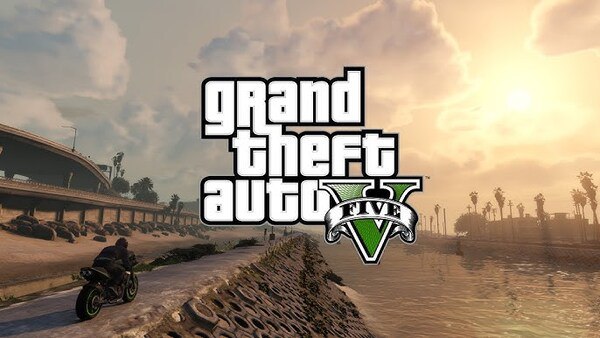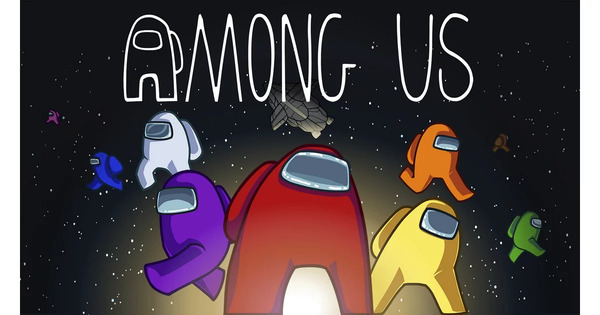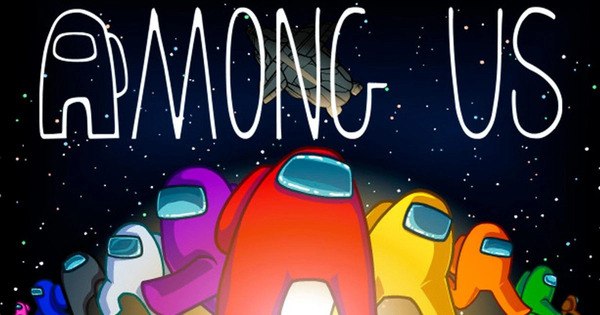Advertisement
Popular Now
Grand Theft Auto V (GTA V) stands as a monumental entry in the world of video games, offering players a sprawling open world and a narrative filled with moral ambiguity. While the game is often lauded for its engaging gameplay and vibrant environment, a deeper examination reveals its intricate exploration of morality. This article delves into the ethical complexities presented within GTA V, analyzing how players navigate moral dilemmas through the perspectives of its three protagonists: Michael, Franklin, and Trevor. By examining their choices and the consequences that arise, we can gain insight into the game’s commentary on crime, justice, and the human condition.
 GTA V is set in the fictitious state of San Andreas, primarily in Los Santos, a city that serves as a microcosm of contemporary American society. The environment is crafted with meticulous detail, portraying a range of socioeconomic backgrounds that challenge players' perceptions of morality.
GTA V is set in the fictitious state of San Andreas, primarily in Los Santos, a city that serves as a microcosm of contemporary American society. The environment is crafted with meticulous detail, portraying a range of socioeconomic backgrounds that challenge players' perceptions of morality.
 The three protagonists of GTA V—Michael De Santa, Franklin Clinton, and Trevor Philips—serve as vehicles for exploring different ethical perspectives. Each character's journey offers unique insights into the complexities of morality.
The three protagonists of GTA V—Michael De Santa, Franklin Clinton, and Trevor Philips—serve as vehicles for exploring different ethical perspectives. Each character's journey offers unique insights into the complexities of morality.
 Franklin embodies the struggle for upward mobility within a morally ambiguous world. His character navigates the challenges of growing up in a crime-ridden environment.
Franklin embodies the struggle for upward mobility within a morally ambiguous world. His character navigates the challenges of growing up in a crime-ridden environment.
 Trevor’s actions often lead to brutal outcomes, forcing players to grapple with the morality of violence.
Trevor’s actions often lead to brutal outcomes, forcing players to grapple with the morality of violence.
 The outcomes of heists reflect the moral weight of players' decisions, emphasizing the interconnectedness of actions and consequences.
The outcomes of heists reflect the moral weight of players' decisions, emphasizing the interconnectedness of actions and consequences.
The Setting: A Moral Canvas
 GTA V is set in the fictitious state of San Andreas, primarily in Los Santos, a city that serves as a microcosm of contemporary American society. The environment is crafted with meticulous detail, portraying a range of socioeconomic backgrounds that challenge players' perceptions of morality.
GTA V is set in the fictitious state of San Andreas, primarily in Los Santos, a city that serves as a microcosm of contemporary American society. The environment is crafted with meticulous detail, portraying a range of socioeconomic backgrounds that challenge players' perceptions of morality.
Urban Decay vs. Affluence
Los Santos is divided into neighborhoods that starkly contrast in wealth and opportunity. From the opulent Vinewood Hills to the struggling streets of South Los Santos, the setting itself raises critical questions about morality and social justice.- Poverty and Crime: The game portrays poverty as a driving force behind criminal behavior. Characters like Franklin illustrate how systemic issues push individuals toward crime as a means of survival.
- Wealth Disparity: The vast wealth enjoyed by characters like Michael highlights the moral ambiguities of privilege and the consequences of a society that rewards corruption and crime.
Immersion in a Complex Society
The detailed world of Los Santos encourages players to engage with its diverse populace, each representing different facets of morality. Interactions with various NPCs and factions further enrich the narrative.- Cultural Diversity: Players encounter a wide array of characters, each with their own moral codes and life experiences, prompting reflections on ethical relativism.
- Realism and Consequence: The game’s realistic portrayal of crime and its effects on society invites players to ponder their own moral beliefs in relation to the virtual world.
The Protagonists: Representations of Moral Conflict
 The three protagonists of GTA V—Michael De Santa, Franklin Clinton, and Trevor Philips—serve as vehicles for exploring different ethical perspectives. Each character's journey offers unique insights into the complexities of morality.
The three protagonists of GTA V—Michael De Santa, Franklin Clinton, and Trevor Philips—serve as vehicles for exploring different ethical perspectives. Each character's journey offers unique insights into the complexities of morality.
Michael De Santa: The Disillusioned Criminal
Michael’s character arc centers around the theme of disillusionment. Once a successful bank robber, he now grapples with the emptiness of his seemingly perfect life.The Illusion of the American Dream
Michael represents the dark side of the American Dream. Despite his wealth, he feels trapped in a life that lacks fulfillment.- Family Struggles: His relationships with his wife and children are strained, revealing the personal costs of his criminal past. Michael's attempts to reconnect with his family often clash with his desire to escape his old life.
- Search for Redemption: Michael's journey reflects the desire for redemption and the difficulty of escaping a life of crime, highlighting the moral complexities of his choices.
Franklin Clinton: The Reluctant Anti-Hero
 Franklin embodies the struggle for upward mobility within a morally ambiguous world. His character navigates the challenges of growing up in a crime-ridden environment.
Franklin embodies the struggle for upward mobility within a morally ambiguous world. His character navigates the challenges of growing up in a crime-ridden environment.
Ambition and Ethical Dilemmas
Franklin’s journey from petty theft to major heists illustrates the lure of crime as a means of escaping poverty.- Moral Conflict: Franklin faces numerous ethical dilemmas, particularly in his relationships with Michael and Trevor. He is often caught between the desire for wealth and the moral implications of his actions.
- Influence of Mentors: His interactions with Michael and Trevor force him to confront different moral codes, adding layers to his character development.
Trevor Philips: The Embodiment of Chaos
Trevor is the most chaotic of the three protagonists, embodying a raw and often violent approach to life. His unpredictable nature raises important moral questions.Violence and Consequences
 Trevor’s actions often lead to brutal outcomes, forcing players to grapple with the morality of violence.
Trevor’s actions often lead to brutal outcomes, forcing players to grapple with the morality of violence.
- Psychological Trauma: Trevor’s backstory reveals a history of trauma, complicating his character and prompting players to consider the roots of his violent behavior.
- Moral Relativity: Trevor challenges players to confront the nature of evil and morality. His disregard for societal norms invites discussions about the consequences of unchecked impulses.
The Heists: Ethical Considerations
Heists are a core gameplay mechanic in GTA V, serving as a crucible for moral decision-making. Each heist presents players with choices that resonate with ethical implications.Planning and Strategy
The planning phase of each heist allows players to approach crime with varying degrees of stealth and aggression, highlighting different moral choices.- Approach Choices: Players can choose between a silent approach or a full-frontal assault, each decision impacting the level of violence and collateral damage.
- Crew Dynamics: The choice of crew members also influences outcomes, raising questions about trust and the ethics of using others for personal gain.
Consequences of Choices
 The outcomes of heists reflect the moral weight of players' decisions, emphasizing the interconnectedness of actions and consequences.
The outcomes of heists reflect the moral weight of players' decisions, emphasizing the interconnectedness of actions and consequences.
- Character Relationships: Success or failure in heists can affect relationships among characters, illustrating how trust can be built or shattered through actions.
- Law Enforcement Response: Players must also contend with the repercussions of their actions on law enforcement, which can lead to larger consequences in the game world.
Law Enforcement: A Satirical Critique
GTA V’s portrayal of law enforcement is both critical and satirical, prompting players to reflect on issues of justice and authority. The game provides a lens through which to examine the complexities of law enforcement in society.The Absurdity of Authority
The game presents law enforcement in an exaggerated manner, using satire to critique systemic issues within policing.- Corruption and Inefficiency: The depiction of corrupt officers and inept investigations underscores the moral failures of those in power, inviting players to question the legitimacy of authority.
- Player Agency vs. State Power: Players are given the freedom to engage or resist law enforcement, reflecting broader societal tensions between individual agency and state control.
Consequences of Criminality
Interactions with law enforcement force players to consider the consequences of their criminal choices in a society that often fails to uphold justice.- Escaping Justice: The challenges players face in evading law enforcement highlight the realities of crime and its repercussions on individuals and communities.
- Moral Responsibility: Players must confront their moral responsibilities, considering the effects of their actions on others and the justice system.
Humor and Satire: A Double-Edged Sword
GTA V is renowned for its dark humor, which often serves to lighten the weight of its serious themes while simultaneously critiquing societal norms. This duality creates a unique tension within the gameplay experience.Comedy as a Coping Mechanism
The game’s humor acts as a buffer against its more troubling themes, allowing players to engage with serious issues in a more palatable way.- Absurd Situations: The comedic elements often arise from absurd scenarios, providing levity amidst the chaos of crime and violence.
- Caricatures of Society: The game’s characters often serve as exaggerated representations of societal archetypes, prompting players to laugh while also reflecting on deeper issues.
Ethical Implications of Humor
While humor can disarm serious topics, it also raises questions about moral engagement and desensitization.- Desensitization to Violence: The comedic portrayal of violence may lead players to become desensitized to its consequences, complicating their understanding of morality in the game.
- Satirical Critique: The humor invites players to critically analyze societal norms, urging them to question their values and beliefs about morality.
The Role of Choice: Agency and Morality
A central theme in GTA V is the impact of player choices on narrative outcomes and character relationships. The game emphasizes that morality is not absolute but rather a spectrum of decisions and consequences.Narrative Branching
The game features multiple endings and branching paths that respond to players’ choices, underscoring the significance of moral decision-making.- Endings Reflect Choices: The varied endings serve as a reflection of players’ moral decisions, reinforcing the idea that every choice has consequences.
- Character Fate: The fates of each protagonist can differ based on players’ decisions, adding depth to the moral exploration and encouraging thoughtful engagement.
Interpersonal Relationships
The relationships among characters are deeply influenced by players' choices, showcasing the interconnectedness of morality and social dynamics.- Trust and Betrayal: Decisions made during gameplay can lead to trust or betrayal, impacting character arcs and player experiences.
- Moral Consequences: The emotional fallout from decisions underscores that morality extends beyond individual actions to their effects on others.
Broader Implications of Morality in GTA V
GTA V's exploration of morality serves as a microcosm for examining larger societal issues. The game invites players to reflect on their values and the ethical complexities of contemporary life.Real-World Ethics
As players navigate the moral dilemmas presented in the game, they are prompted to consider their beliefs about crime, justice, and morality.- Comparative Morality: Players may find parallels between their in-game choices and real-world ethical dilemmas, encouraging critical thinking about their moral frameworks.
- Influence of Environment: The game’s setting emphasizes how context shapes moral choices, prompting players to reflect on their own environments and experiences.
The Role of Agency
GTA V empowers players with agency, highlighting that morality is not binary but rather a spectrum of choices and consequences.- Empathy Through Choice: Engaging with the game’s moral decisions fosters empathy, encouraging players to consider the human element behind each choice.
- Reflection on Consequences: The interconnected nature of choices encourages players to think critically about their moral beliefs and the impact of their actions in both the game and real life.


















